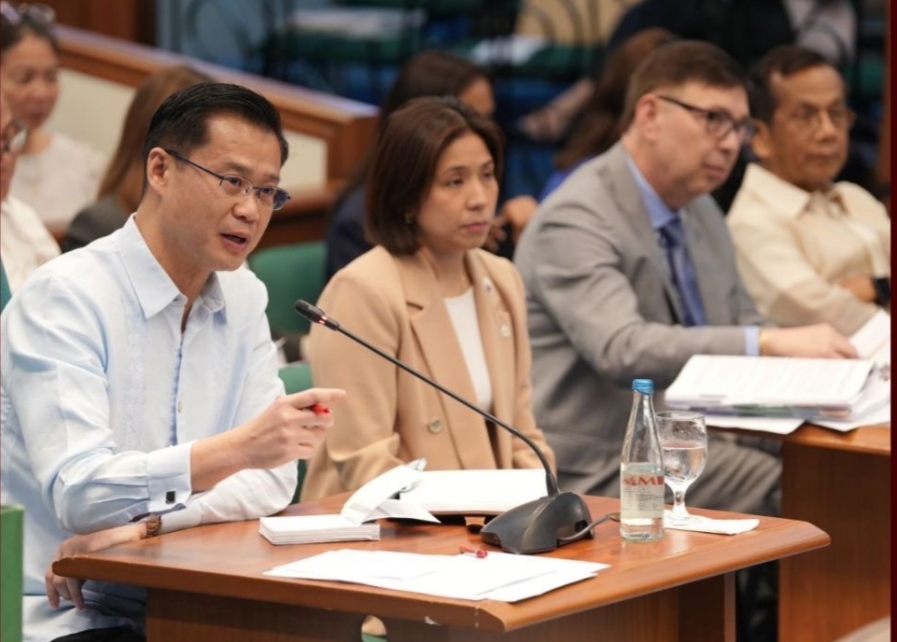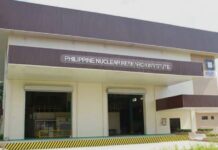PASAY CITY — Senate Finance Committee Chairperson Senator Win Gatchalian, speaking for the economic managers in defense of the FY 2026 National Budget, assured the Senate of a corruption-free 2026 national budget during the plenary deliberations on the General Principles of the proposed Fiscal Year (FY) 2026 National Budget with the Development Budget Coordination Committee (DBCC) held on Thursday, November 13, at the Senate of the Philippines in this city.
“Kasama po ako na gustong siguraduhin na itong budget na ipepresent natin at aaprubahan later on ay lean, mean, at corruption-free,” Senator Gatchalian said.
This commitment came in response to Senator Erwin Tulfo’s inquiry on how the government can guarantee that the 2026 budget will be free from pork barrel allocations and kickbacks.
MEASURES FOR A CORRUPTION-FREE BUDGET
Senator Gatchalian enumerated the reforms introduced to strengthen transparency and accountability for the FY 2026 General Appropriations Bill (GAB).
First, all infrastructure projects of the Department of Public Works and Highways (DPWH) now have specific Station numbers, Bridge IDs and School IDs included in the Committee Report. This means that project details, including cost, duration, and location, are also publicly accessible online, allowing citizens to monitor, verify and track project implementation.
Second, Sen. Gatchalian also noted that the Senate version of the 2026 National Budget removed the SAGIP, or Strengthening Assistance for Government Infrastructure and Social Programs Fund, from the Unprogrammed Appropriations.
Finally, the Senate also considered the DPWH’s submission of a lower Construction Materials Price Data (CMPD), following the directive of President Ferdinand R. Marcos Jr. to review and rationalize material costs. This enabled the Senate to bring down the proposed DPWH budget from about Php 625.78 billion to about Php 568.56 billion, ensuring that the same projects can be implemented at lower costs without sacrificing quality.
HIGHER BUDGET FOR EDUCATION
Savings generated from adjustments in the proposed FY 2026 National Budget were redirected to the education sector, which now receives the highest allocation in recent history, with Php 1.383 trillion, equivalent to 4.5 percent of GDP. This secures the initiative of DBM Budget Secretary Amenah Pangandaman to meet, for the first time, the UNESCO Education 2030 Framework’s recommended benchmark of allocating at least 4 percent of GDP to education.
This is following the directive of President Ferdinand R. Marcos Jr. to redirect savings generated from prudent government spending to priority social services such as health, education, and food security.
Of this amount, the Department of Education (DepEd) will receive Php 992.7 billion, an 8.6 percent increase from than the amount approved under the House version. Specifically, allocations have been increased for Basic Education Facilities and School-Based Feeding Programs, underscoring the government’s commitment to learning recovery and child nutrition.
He further emphasized that building public confidence in government spending goes hand in hand with enforcing accountability. Gatchalian stressed that the fight against corruption, especially in infrastructure projects, is a key part of restoring trust in government institutions and the economy.
“This might not be an economic policy, but part of the confidence-building in bringing trust to the government is making sure that people who are involved in the flood-control corruption will be held to account…because if you talk about building trust in the government, this is not only the trust of our people but also the trust of the business community,” Gatchalian said.
The DBCC, represented by DBCC Chairperson and DBM Secretary Pangandaman; DBCC Co-Chairperson and Finance Secretary Ralph G. Recto; DBCC Vice Chairperson and Department of Economy, Planning, and Development (DEPDev) Secretary Arsenio M. Balisacan; and Bangko Sentral ng Pilipinas (BSP) Deputy Governor Zeno Ronald R. Abenoja, reaffirmed its commitment to work closely with Congress to ensure that the FY 2026 National Budget supports the administration’s Agenda for Prosperity toward a Bagong Pilipinas that is more transparent, accountable, and responsive to the needs of every Filipino. (Mabuhay News Online)







